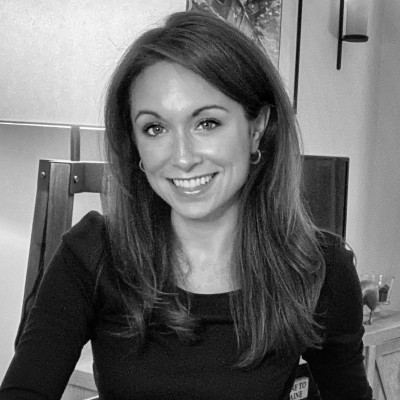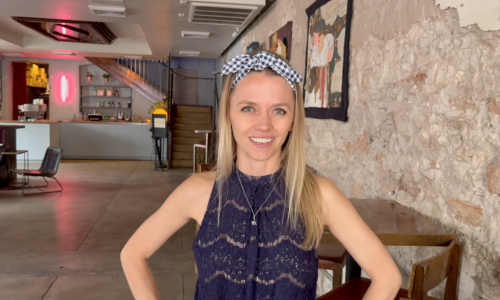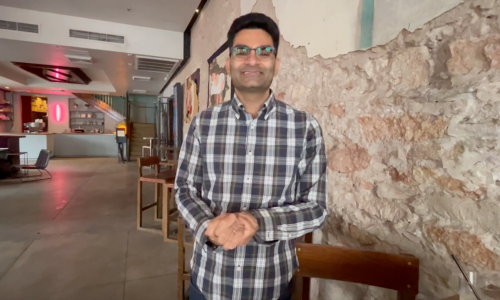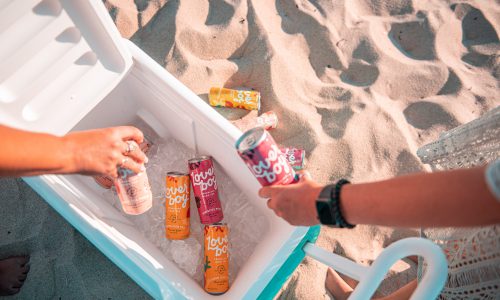How do you build a brand with a product that very few people know about? And what if that product belongs in an already highly competitive category (the plant-based beverage industry was a $9.8 billion market just a few years ago and is expected to hit over $16 billion in 2018, according to Innova Market Insights).
These were some of the initial challenges Mike Messersmith had to consider when he was hired by Oatly as their third U.S. employee tasked with growing the business stateside. Read on to discover how the Swedish oat milk brand’s General Manager is using a focused, tactical approach to introduce Americans to this nutritious milk alternative that is being dubbed by many as the ‘new almond milk.’
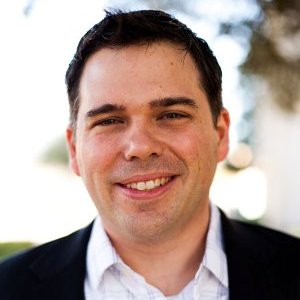
ForceBrands: Let’s first chat about your background. How have your past career experiences helped prepare you for becoming the General Manager of Oatly?
Mike Messersmith: I was an officer in the United States Navy for a number of years. I went to college on a Naval Reserve Officers Training Corps scholarship, which was an amazing opportunity. I spent my first five-plus years after graduation on Navy ships traveling all over the world and working in engineering. I worked in the nuclear power function on Navy warships, so that gave me good confidence to problem-solve just about anything. It was a great experience that became the foundation for all the things I think about now in terms of how to build great teams; how to communicate; and how to deal with really stressful situations. Because whether you’re on a naval ship or trying to launch an oat milk business, there are going to be stressors.
FB: When did you first become interested and involved in the consumer products space?
MM: I went to business school and felt that consumer goods was the area that was most exciting for me as it was a good application of my interests and desires to lead teams and deliver results. I started my career in Frito Lay, in Dallas. I needed that classical CPG experience to work with big, iconic, powerhouse brands. I quickly learned – as anyone in the industry knows – that there’s a lot of action in the smaller, high growth brands and that was something that interested me – especially working with products that have great health credentials and are in the natural food space. I left Frito Lay to join Chobani Greek Yogurt where I got to experience the opportunities and challenges of a really disruptive, visionary brand and founder-led company. That experience cemented my desire to lead a natural food brand. I left Chobani to work at the Nature’s Bounty Company where I ran a portfolio of sports nutrition brands for a couple of years. It wasn’t until I met the CEO of Oatly and had some great conversations with him about the product and their initiatives that I joined the team as their third employee in March 2017. What made Oatly such a unique and special opportunity was that you had all the amazing opportunities of a true startup but had great resources: hundreds of people in Sweden had been working on this brand for over 25 years and were experts in it. By the time I joined, they had already built what I consider an amazingly robust brand. So when you’re a startup with a very successful high growth business in Europe that’s able to help support your growth in the U.S., it allows you to take risks and to be more aggressive.
FB: What makes Oatly unique? How does it stand out from a nutritional perspective?
MM: Oatly is a vegan plant-based milk made out of oats that was founded over 25 years ago in Sweden. We uniquely focus on oats and purposefully chose to work with oats because they have great nutritional qualities and are a sustainable environmentally-friendly source ingredient. We were looking for a great alternative to cow’s milk that would be able to deliver balanced nutritional benefits without taxing our natural resources and the environment. Oatly has a clean ingredient label and a good blend of carbohydrates, fats, proteins, and fibers.
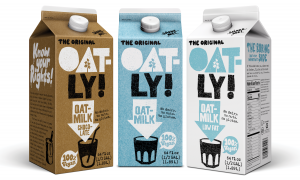
FB: What does it take to break into the highly competitive alternative milk space? What have been some of the biggest challenges Oatly’s had when it comes to standing out in this category?
MM: It’s definitely a very competitive space. We have big categories that are still fast-growing – a mix of larger multi-national CPG companies like Danone Wave and Almond Breeze, and then you also have some really inventive, creative newer players that are just getting started with some new specialty products. That said, we did not take that challenge lightly. Our competitors are making amazing products and are building great brands. For us, the biggest thing we think about a lot is that very few people in the U.S. have even heard of the idea of oat milk so we needed to find a way to help people mentally cross that bridge and accept and familiarize themselves with the idea of it. The second piece to that is that as a new brand, the biggest barrier you encounter is figuring out how you drive trial of your product. No matter what you’re doing, it starts with an amazing product. If you only have an average product, I think it’s going to be really hard to build a great business. So that led to the way we chose to narrow our focus on where we can provide the most value. And while we were delaying some of the opportunities we may have been able to pursue even earlier such as retail, we purposely held off to focus on building the brand and driving trials through on-premise specialty coffee because we felt that that coffee was an area where people are passionate about – they have their local established spots that offer many non-dairy options. The barista community has responded exceptionally well.

FB: Speaking of great coffee, many New Yorkers can’t start their day without it. Oatly is hugely popular in New York. How does this market compare to others – and are there any tips or tricks for ‘making it New York’?
MM: We started with one launch partner which was Intelligentsia and they’ve been amazing. It is daunting when you think about New York City coffee — and New York City overall. Where do you start? The opportunity is so big that you feel like you either have to do it all right away or that somehow it’ll all slip away from you. We tried to stay incredibly disciplined and focused by starting small and focusing on only a handful of shops that had great cult followings in their neighborhoods that we also had good relationships with.
My advice is to not get distracted by the ambition or the opportunity of how big things could be, especially at the beginning. Stay as focused as you can and really disciplined in building meaningful momentum that will create more strategic opportunities down the road.
FB: Here at ForceBrands, we build the teams that build the brands. Do you have any team building insights or strategies for brands who are experiencing similar rapid growth?
MM: One of the mistakes a lot of brands neglect to consider when building out a team is to plan for the business they want to have versus the business they are today. Try to anticipate the business needs 3-6 months in advance rather than wait until the challenge becomes so unattainable that the team is about to break apart at the seams before we bring in new hires. It’s stressful for any employee joining a new team starting a new company and if you throw them into the mix of having to deliver like a veteran on day one, it can create some challenging cultural and performance effects within a team. My advice is to be controlled and consistent about hiring. Be thoughtful about the roles critical for growth and give those hires a 3-4 month ramp-up period so that they’re ready to take on the challenges ahead.
FB: How would you describe the Oatly culture?
MM: As I took this job, one of the things I thought about was, ‘If I’m at this place and the culture stinks, then I have no one to blame but myself.’ That was a really good challenge and starting place for me to think about how we hire exceptional talent – sharp motivated people who are great communicators and are aligned with our vision and values. To that end, we want people who are confident to speak up. We have a very flat team so they don’t just have an opportunity but they also have an obligation to speak up about our strategy and help us be better every day. They need to be very aligned with our overall Oatly values, which are focused on sustainability, nutritional health, and transparency. As a team, there are no secrets about information. We don’t tightly control the numbers or the strategic vision within our core team.
Ultimately, my job is to make our company’s vision and strategy as clear as possible and to make sure that everybody on our team understands how the work they’re doing fits into us accomplishing that strategy.
FB: What’s ahead for Oatly? Are there any exciting product innovations on the horizon that you could share with us?
MM: Right now, we’re completely focused on our flagship oat milk in the U.S. It’s a great first way to experience the brand and the product. You can go on our website and you can see the 80+ items we make in Sweden using the same manufacturing process focused solely on oats. We have a very creative product development team in Sweden who have made everything from frozen treats, breakfast shakes, cooking creams, to spreads you can put on bagels. While we’re focused on oat milks here in the U.S., we’re super excited about the development of the plant-based and dairy-free/alternative milk market across many categories – a market that we feel is still at the very beginning stages of growth. As far as innovation, we’re benefitting from discipline and focus, which is challenging when you have opportunities ahead of you.
But we realize that people love Oatly because of the quality and the attention to detail so we’re trying to be as ambitious as we can be while also maintaining the discipline to do what we’re doing really well.
Interested in working for an innovative beverage brand? Visit our BevForce job board.
